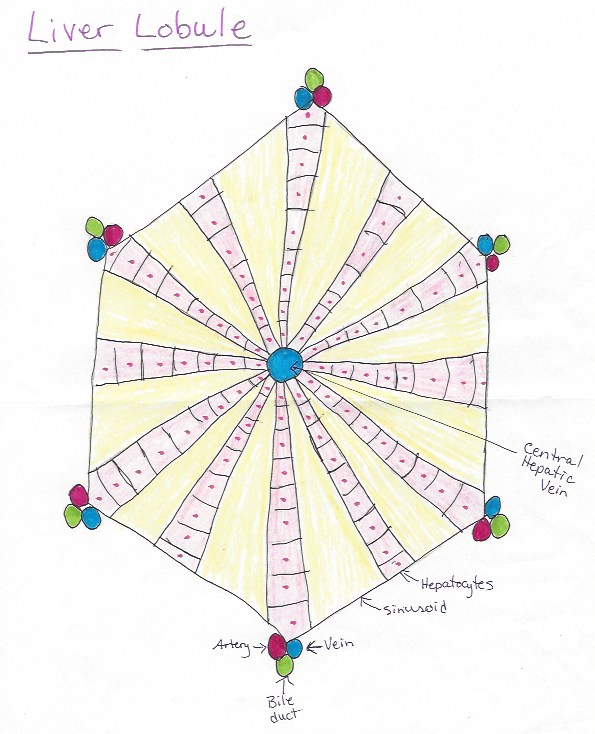Oct 5, 2015
100,000’s - get counting!
Enzymes
The hepatocytes contains enzymes. Enzymes are catalysts. While a lot of processes would probably happen naturally, they would be too slow to do us any good. Enzymes make those natural changes happen faster.
Think of an assembly line worker that does they same action over and over again on each piece being made. That’s how enzymes work.
Things that have floated around your body and done their job (i.e. drugs, hormones), the liver brings them back in and breaks them apart into inactive parts so they can be disposed of in one of your waste systems (urine or poo).
A lot of drugs go through the liver to become active and sent out to do a job, or to be deactivated after the job is done. You don’t want those things to stay around forever because they can become toxic.
Your liver also detoxes your body of used up hormones. Your body produces fresh ones as you need them, so the old ones need to be gotten rid of.
The most popular job that your liver does is filtering out alcohol. Science says an average liver can process 1 standard alcoholic drink per hour (for some people that’s longer - up to 4 hours).
Thus you have to be careful with cocktails and mixed drinks due to the different types of alcohol that get added together. 1 drink DOES NOT equal 1 glass!
Liver cleanses your blood of:
- Drugs
- Hormones
- Sex hormones
- Adrenaline
- Cortisol
- Alcohol
Thank your liver!!
Connect with me
Support us on Patreon
*NEW* Join the Pharmacist Answers Podcast Community on Facebook
Subscribe: iTunes, Stitcher, GooglePlay, TuneIn Radio


